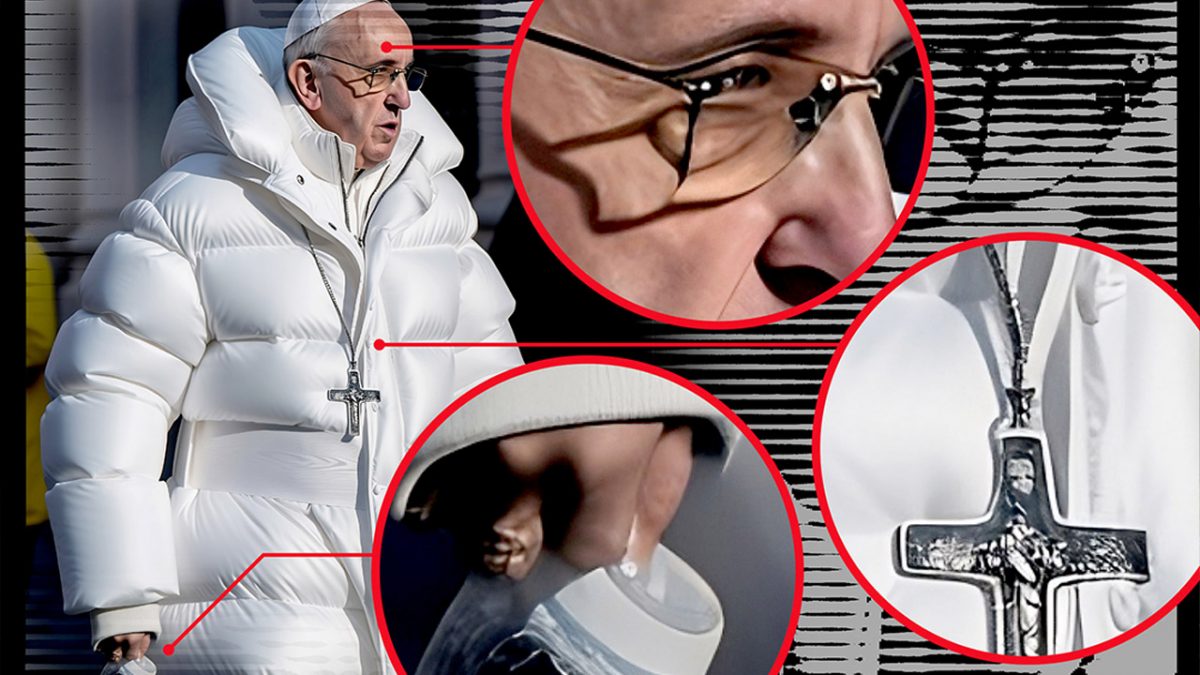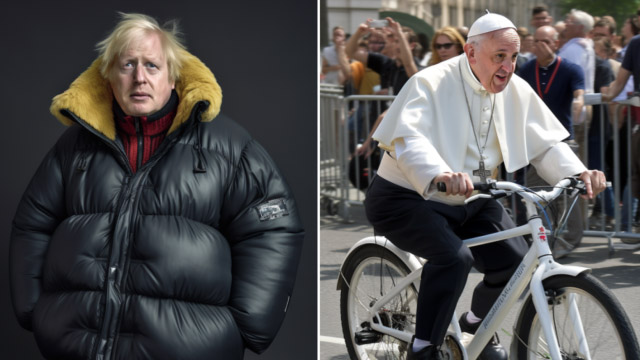
With the AI-Generated Pope Francis image going viral, you may want to know how to identify these fake images
I’m sure by now many of you have heard about the fake AI-generated image of Pope Francis wearing a puffer jacket, especially if you read yesterday’s article about it. In retrospect, many are saying that it should have been evident that the image wasn’t real. However, that’s only in retrospect. When the photo went viral, it fooled many people around the world for a few hours.

It’s brought a new question to mind that’s trending today: is it possible to spot an AI-generated image and not be fooled? With deepfake image production moving from humans with photo-editing apps to AI technology, there’s a concern that we won’t be able to tell the difference between reality and really good reproductions.
Drago, in the comments of yesterday’s post, actually was pretty spot on with one of the methods you can use. Just take a closer look at the image and scrutinize every aspect. Be an investigator, judging every element of the photo.
If we take the Pope Francis photo of yesterday, Drago is right when he says there are some clear signs of AI manipulation. The Pope’s hand is malformed and not even holding the can properly. The crucifix is hanging desperately with one part of the chain missing, and there’s something very wrong with the Pope’s eyebrow and glasses covering it.
While this is a great technique, AI will only become better at generating images like this going forward. I’m not sure who of you wants to spend hours trying to see if any details are strange. Probably a faster method is to check social media platforms like Twitter to see what people are saying about the images.
Of course, I’m not going to ask you to rely on Twitter as a credible source, but people in the comments usually do a good job of ripping things like this to shreds.
The University of Naples and Nvidia are two examples of where companies are trying to see if AI-detection tools for images are possible. We already have a few of these tools for written text, but I’ve been testing several of them for weeks, and they struggle to detect actual human writing in many cases. If finding AI text is so challenging, imagine how it must be for photos.
For now, you’ll have to use your judgment and see what everyone else is saying. Somewhere, out there, you’ll find the truth, or some semblance of it.
- funkyy
-

 1
1




Recommended Comments
There are no comments to display.
Join the conversation
You can post now and register later. If you have an account, sign in now to post with your account.
Note: Your post will require moderator approval before it will be visible.